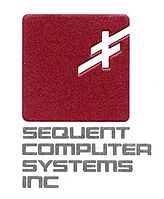I currently don’t have any systems I can point at Oracle’s Unbreakable Linux Network. If I did, I’d get a copy of the new oracle-validated-1.0.0-4.el4.x86_64.rpm package. This package aims to collect all the necessary system RPMs and install them as well as configure all the sundry system parameters required for Oracle. According to this Oracle Linux Validated Configuration description, the package does the following:
Additional packages from Oracle:
# This package automatically pulls in package dependencies and sets
# system parameters recommended above. It is not required but is
# recommended in order to save time in getting the system setup. It is
# available from ULN by subscribing to the "Oracle Software" channel and
# then using up2date to install it. The dependent packages will be
# installed and parameters will be adjusted as part of this up2date process.
oracle-validated-1.0.0-4.el4.x86_64.rpm [ Optional package, but recommended ]
If anyone happens to have a copy laying around and wouldn’t mind shooting me a copy, I’d like to rpm2cpio(8) it and take a peek. I’ve been hoping for quite some time that Oracle Enterprise Linux will include some things that make Oracle on Linux simpler. This could be a start.


I have the following:
oracle-validated-1.0.0-4.el4.x86_64.rpm
oracle-validated-1.0.0-4.el4.i386.rpm
oracle-validated-1.0.0-4.el4.src.rpm
oracle-validated-1.0.0-3.el4.src.rpm
Let me know how you want them sent to you.
Marc Handelman
Hi Kevin, I have noticed that when you name linux commands you put a number in brackets after it, e.g. rpm2cpio(8) in this article. I have a couple of questions
1) what does it mean
2) why do yo do it as opposed to just saying the normal command?
Thanks
dave
Hi Dave,
The answer is pretty old school. I do it to specify the exact command, call, utility, what have you. That nomenclature tells you exactly what section of the manpages it is documented in. For example, if I’m talking about the system call open(2), and you simply type “man open” on a linux system you get the manpage for open(1) which is totally different than the open(2) system call.
There was a day when a belt sander would drop from the ceiling and grind you to a fine powder if you were writing about a Unix command and didn’t cite it properly. Old habit I guess.
Although a package like that is a good idea to ease the job for administrators, I’ve managed to successfully install Oracle 11g even on an unsupported platform: Debian GNU/Linux. It went practically flawlessly (one warning, some java exception). More details on this page: A First Look at Oracle 11g database on Debian GNU/Linux
Component certification is quite important for enterprise use, but IMHO it’s even more important to make portable software, and Oracle seems to be pretty good at it.
The oracle-validated package does more than pull in package dependencies. It also creates the oracle user and dba/oinstall groups, and also sets the bare minimum kernel parameters. It has saved me some time in preparing servers for oracle installs.
As a side note, another benefit of ULN is to be able to use the up2date utility to grab the ASM and OCFS2 packages.
This is interesting, but I’ve written some cfengine scripts to do all the annoying pre-installation tasks that I seem to forget every time I’m building a new cluster.
Still, installing OCFS2 and ASM RPMs might be nice… We’ll have to check out Oracle Unbreakable Linux, although I hate to have to call HP tech support and tell them what OS I’m running if there is a storage problem… LOL
Still, installing OCFS2 and ASM RPMs might be nice
OCFS2, please no…
The only reason for OCFS would be shared export/import location or external tables and alike. Shared Oracle home would be another reason but it’s hardly a good idea anyway.
OCFS basically runs another clusterware behind the scene with it’s own heartbeat and eviction policy. Many many times I saw OCFS messing up CRS cluster and customer spending weeks to figure that out.
I would rather consider NFS or change design to be able to use local filesystem.